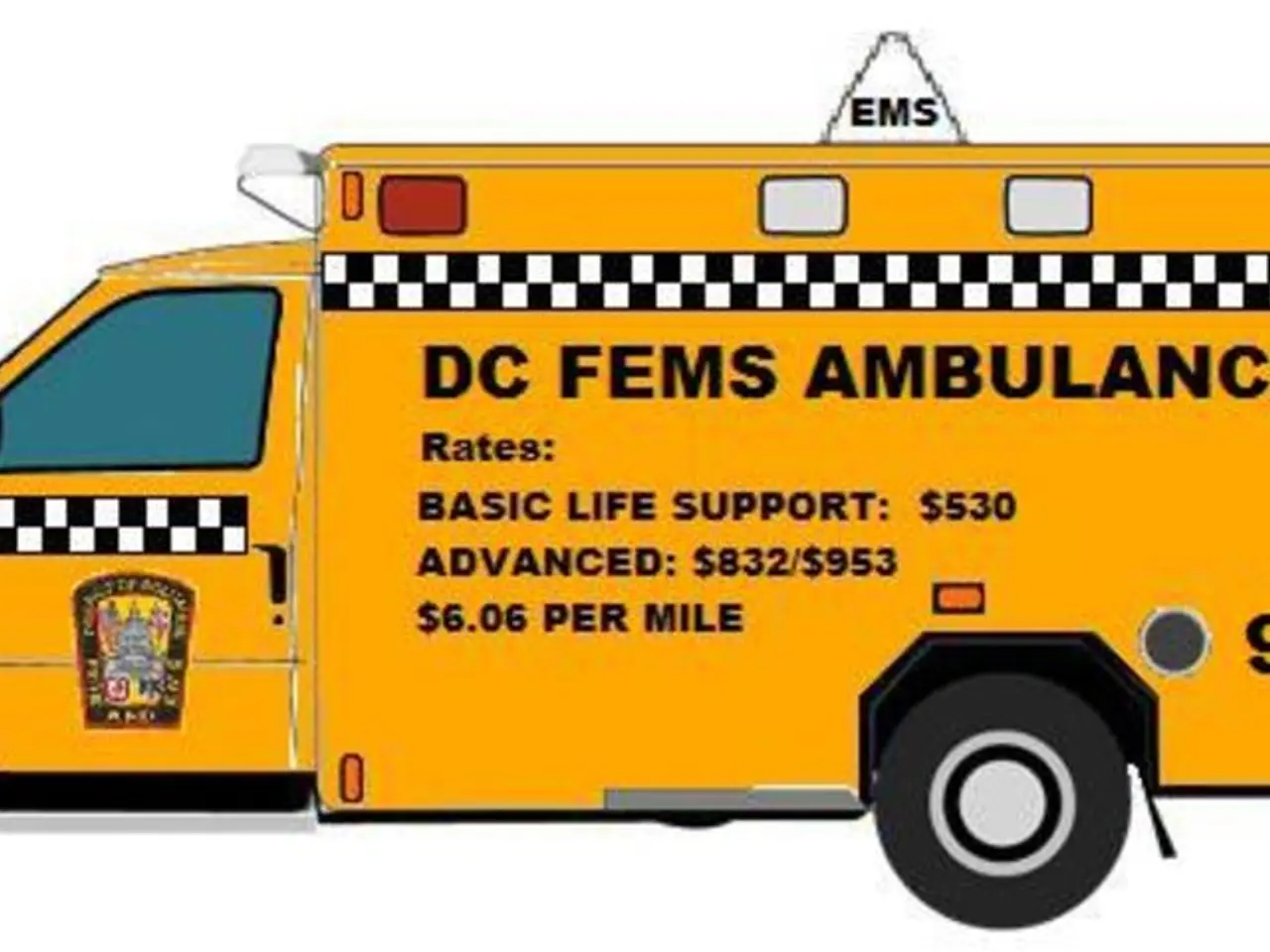Emergency services response delayed, boy succumbs to sepsis after mother makes four distress calls and endures a 90-minute wait at the hospital, coroner's court learns.
In the ongoing inquest at County Hall in Exeter, questions are being raised about the NHS's emergency response system after a three-year-old boy named Theo tragically died from sepsis following a 90-minute wait for an ambulance.
Theo had been admitted and discharged from Plymouth's Derriford Hospital the previous day with a suspected upper respiratory infection. The coroner has expressed concern about inconsistencies in the grading of Theo's case by two different services, the South West Ambulance Service and Herts Urgent Care, 24 hours apart.
The NHS uses a grading system, provided by NHS England through a product called NHS Pathways, to prioritize ambulance responses based on clinical urgency and resource optimization within urgent and emergency care pathways. The system aims to ensure the "right care, right place, right pathway, right process, right people" approach in urgent and emergency care.
This system typically involves triaging calls into different categories or grades, reflecting the severity and immediacy of clinical need. Higher-grade emergencies, such as life-threatening conditions, receive faster ambulance dispatch compared to lower-priority cases. However, the system can be strained by high demand or complex cases, as seen in Theo's case.
The delay in Theo's ambulance response has highlighted the critical need for accurate triage and sufficient ambulance resources to respond rapidly to life-threatening emergencies like sepsis, which can deteriorate rapidly, requiring very prompt emergency response to improve survival chances.
Dr Graham, who was involved in Theo's case, stated that the grading system they used was provided by NHS England. However, there is a concern about two different algorithms or systems in place within the UK that led to a different category and ambulance disposition for Theo's case.
It is important to note that individual providers do not have any jurisdiction over the NHS Pathways product. The exact grading and decision process for this specific case are not detailed in the search results, but such incidents underscore ongoing challenges in emergency triage and ambulance dispatch systems in balancing urgency, resource availability, and patient outcomes.
The inquest into Theo's case continues, with the coroner exploring the implications of the inconsistent grading and the potential impact it may have had on Theo's care and outcome. The case serves as a reminder of the importance of an effective and consistent emergency response system, particularly in life-threatening situations.
- The news about Theo's tragic death has raised questions about the NHS's emergency response system.
- Health and wellness advocates are calling for improvements in the NHS's emergency response system following Theo's case.
- Science and research can help identify solutions for improving emergency response systems in healthcare.
- A good sleep pattern is vital for optimal cognitive function at the workplace, contributing to workplace-wellness.
- Medical conditions like sepsis demand immediate attention and rapid response, underscoring the need for a robust emergency response system.
- Chronic diseases and cancers also require effective emergency response systems for timely intervention.
- Respiratory conditions, such as asthma, require quick response and treatment, making them relevant to the discussion on emergency response systems.
- Digestive health issues can sometimes escalate into emergencies, warranting the need for an efficient system.
- Eye-health, hearing, and skin-care are crucial aspects of overall health, and prompt response in emergencies can make a significant difference in treatments.
- Health and wellness, fitness, and exercise play a significant role in maintaining a healthy lifestyle and preventing various medical conditions.
- Sexual health is an essential part of overall health, and emergencies related to it require timely attention and care.
- Autoimmune disorders like rheumatoid arthritis can have sudden flare-ups that demand immediate medical attention.
- Climate change impacts public health, including the spread of contagious diseases, which may require an efficient emergency response system.
- The manufacturing industry also faces emergencies, requiring quick intervention for safety and productivity.
- Mental health emergencies demand prompt attention and care, and adequate resources should be allocated to respond to these.
- Men's health is an often-neglected topic, and it's essential to prioritize it in emergency response systems.
- Skin conditions can sometimes turn into complications that require urgent medical attention, highlighting the need for proper emergency response.
- Therapies and treatments for various medical conditions require timely responses to ensure their effectiveness.
- Aging can lead to various health problems, and a prompt response in emergencies can help manage these effectively.
- Women's health emergencies require specialized care, and an efficient emergency response system should cater to these needs.
- Parenting can be stressful, and mental health emergencies related to it should receive prompt attention and care.
- Weight management is essential for maintaining good health, and emergencies related to it can be addressed with timely intervention.
- Cardiovascular health is critical, and prompt response in emergencies like heart attacks or strokes can improve survival chances.
- The healthcare industry continues to evolve, with innovations in medicare, CBD, and neurological therapies shaping the future of healthcare.
- Environmental science plays a crucial role in understanding the impact of climate change on public health, necessitating effective emergency response systems.
- Finance, energy, and real-estate sectors also have their unique challenges, requiring a well-functioning emergency response system.
- Skin conditions like acne or eczema can escalate into severe infections needing immediate attention.
- Space and astronomy, as well as the aerospace sector, are areas of increasing interest, and emergency response systems should be in place to handle potential incidents.
- Public transit, entrepreneurship, transportation, leadership, diversity, automotive, small business, investing, aviation, careers, housing market, venture capital, banking and insurance, fintech, and retail are all sectors that can benefit from effective emergency response systems.








